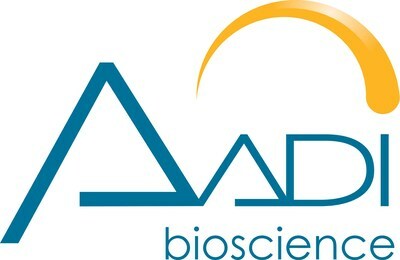Aadi Bioscience Announces Poster Presentations at the 2024 American Society of Clinical Oncology (ASCO) Gastrointestinal (GI) Cancers Symposium
- None.
- None.
- New real-world analysis highlights unmet medical need in GI cancer patients with TSC1/2 alterations-
Abstract and poster presentation details are below:
Title: "Real-world analysis of patients with advanced gastrointestinal (GI) cancers harboring inactivating TSC1 and TSC2 alterations using the Foundation Medicine genomic database"
Session Title: Poster Session B: Cancers of the Pancreas, Small Bowel, and Hepatobiliary Tract
Date/Time: January 19, 2024 – 12:30 – 2:00 pm
Abstract: 558
Presenting Author: Dustin Deming, MD
Abstract Highlights:
- In a large real-world database of patients with advanced cancer, 1,898 (
1.4% ) of the 138,671 patients with GI cancers harbored at least one known or likely inactivating alteration in TSC1 or TSC2 - TSC1 and/or TSC2 inactivating alterations were present in
6.8% of liver cancers,1.6% of colorectal cancers, and0.5% of pancreatic cancers - Across GI malignancies, genes frequently mutated in tumors with wild-type TSC1 and TSC2 were similar to genetic mutations co-occurring in tumors with alterations in TSC1 and/or TSC2
- Most TSC1 and/or TSC2 inactivating alterations in liver and pancreatic cancers occurred in the context of low TMB and MSS tumors; whereas increased TMB and MSI signatures were enriched in colorectal cancer with TSC1 and/or TSC2 alterations
- Limitations of this exploratory, real-world study include the timing of sampling (at initial diagnosis vs disease progression) and the absence of clinically matched outcomes data. More research is needed to understand the clinical and prognostic implications of these data
- The PRECISION 1 study (NCT05103358) is currently enrolling patients with solid tumors harboring TSC1 and/or TSC2 inactivating alterations
Aadi is also presenting Trials-in-Progress (TiP) posters from its PRECISION 1 and NET clinical studies.
Title: " PRECISION 1: A phase 2, multicenter, open-label basket trial of nab-sirolimus for malignant solid tumors harboring pathogenic in activating alterations in TSC1 and TSC2"
Session Title: Trials in Progress Poster Session B: Cancers of the Pancreas, Small Bowel, and Hepatobiliary Tract
Date/Time: January 19, 2024 – 12:30 – 2:00 pm
Abstract: TPS585
Presenting Author: Dustin Deming, MD
Title: "A phase 2, study of nab-sirolimus in patients with well-differentiated and advanced/metastatic neuroendocrine tumors of the gastrointestinal tract, lunch, or pancreas"
Session Title: Trials in Progress Poster Session B: Cancers of the Pancreas, Small Bowel, and Hepatobiliary Tract
Date/Time: January 19, 2024 – 12:30 – 2:00 pm
Abstract: TPS601
Presenting Author: Scott Paulson, MD
More information can be found on the ASCO GI meeting website.
About Aadi Bioscience, Inc.
Aadi is a commercial-stage biopharmaceutical company focused on precision therapies for genetically defined cancers to bring transformational therapies to cancer patients with mTOR pathway driver alterations. Aadi received FDA approval and has commercialized FYARRO® for the treatment of adult patients with locally advanced unresectable or metastatic malignant perivascular epithelioid cell tumor (PEComa).
Aadi has also initiated PRECISION1, a Phase 2 tumor-agnostic registration-intended trial in mTOR inhibitor-naïve malignant solid tumors harboring TSC1 or TSC2 inactivating alterations. More information on the Company's development pipeline is available on the Aadi website at www.aadibio.com and connect with us on Twitter and LinkedIn.
Contact:
Marcy Graham
IR@aadibio.com
![]() View original content to download multimedia:https://www.prnewswire.com/news-releases/aadi-bioscience-announces-poster-presentations-at-the-2024-american-society-of-clinical-oncology-asco-gastrointestinal-gi-cancers-symposium-302039765.html
View original content to download multimedia:https://www.prnewswire.com/news-releases/aadi-bioscience-announces-poster-presentations-at-the-2024-american-society-of-clinical-oncology-asco-gastrointestinal-gi-cancers-symposium-302039765.html
SOURCE Aadi Bioscience








